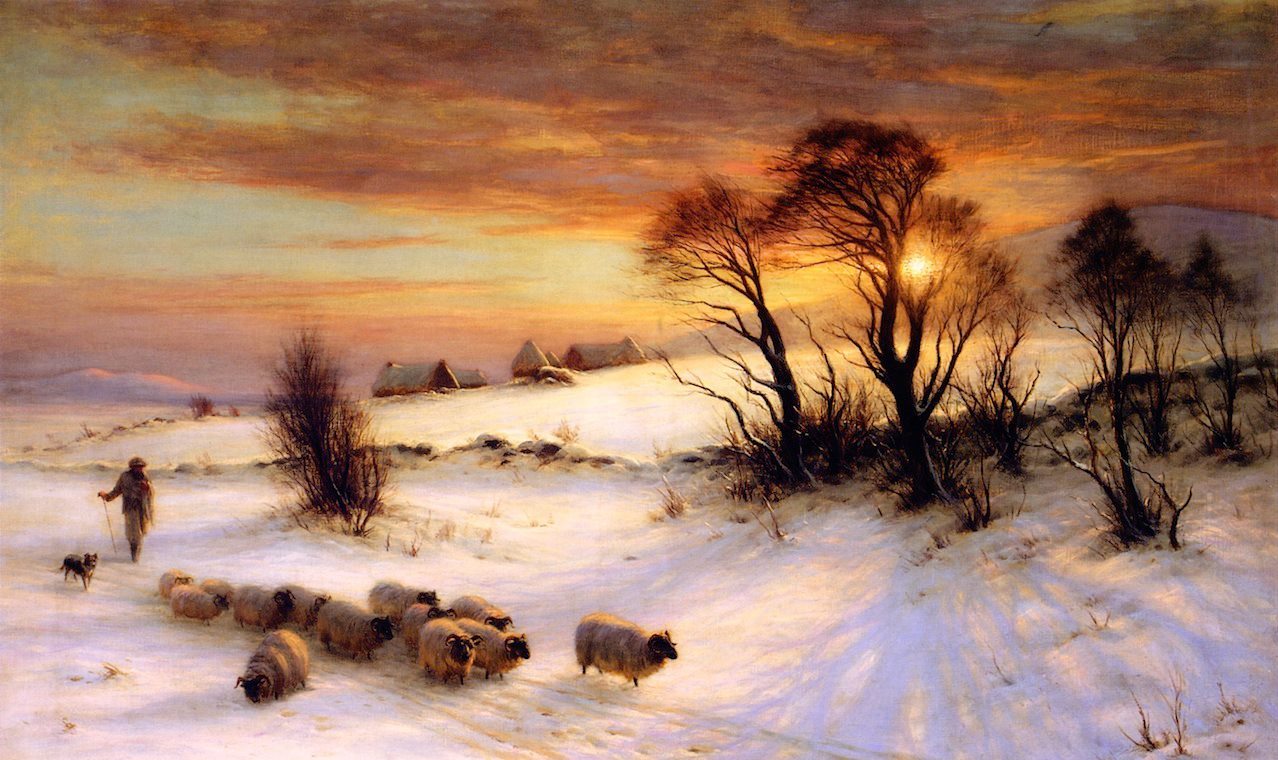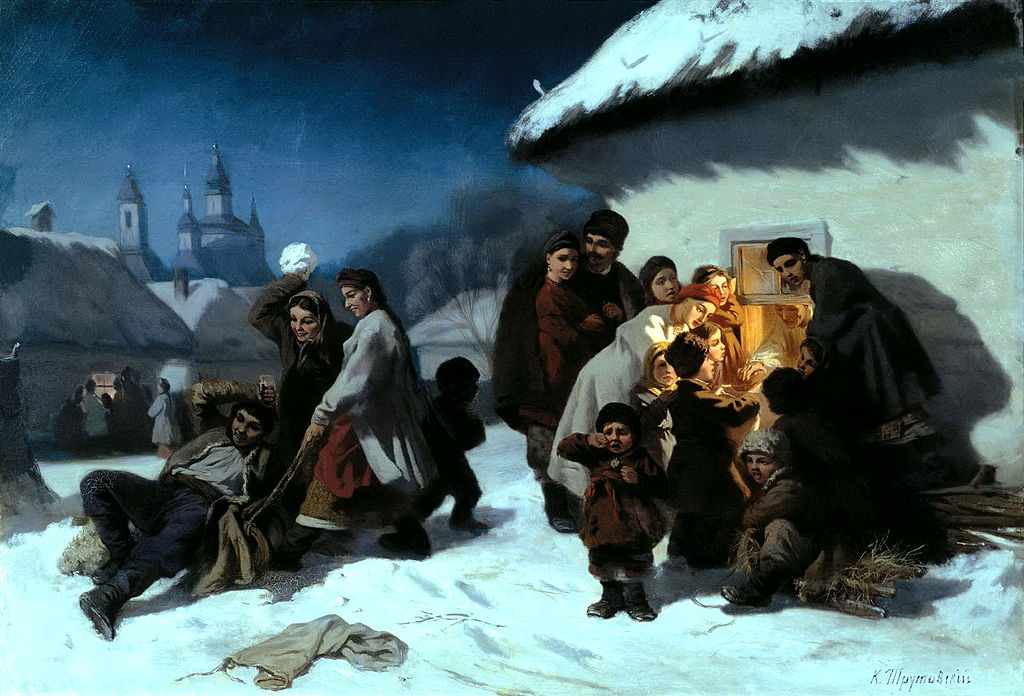By Jane Blanchard
On December 5, 1830, Christina Rossetti was born in London to an Italian-English mother married to an Italian poet in exile. The youngest of four children, all of whom grew up to be published authors, Rossetti became so well regarded for her work that she was mentioned in literary circles as a possible Poet Laureate of England upon the death of Alfred, Lord Tennyson, in 1892. At this time, though, she was suffering from breast cancer, which caused her own death on December 29, 1894.
Rossetti lived with various members of her family throughout her life. She declined to marry any of several suitors, presumably because none of them shared her devotion to Anglicanism. Her collections of poetry, all infused with her faith and dedicated to her mother, display an amazing variety of styles and subjects. The following verse is representative of the spirituality that she often artfully expressed:
Christmas Eve
By Christina Rossetti
Christmas has a darkness
Brighter than the blazing noon,
Christmas has a chillness
Warmer than the heat of June,
Christmas has a beauty
Lovelier than the world can show:
For Christmas bringeth Jesus,
Brought for us so low.
Earth, strike up your music,
Birds that sing and bells that ring;
Heaven has answering music
For all angels soon to sing:
Earth, put on your whitest
Bridal robe of spotless snow:
For Christmas bringeth Jesus,
Brought for us so low.
Rossetti’s “Christmas Eve” is a poem of anticipation: at the very end of Advent, the speaker looks forward to the hour that Christmas begins. The poem opens with three comparisons involving imagery. The first two are paradoxes in which “darkness” becomes light and “chillness” becomes warmth. The third is more abstract: Christmas surpasses any “beauty” of the “world.” These comparisons—all claims—are true because, according to line seven, “Christmas bringeth Jesus.” At this point of the poem, Christmas gains agency: it not only appears; it also acts. However, the use of the passive participle “Brought” in line eight suggests a hidden higher agent behind the special delivery “for us so low.” In addition, this line finally introduces the speaker, but only by integrating her into the plural pronoun “us” as one of many recipients of God’s embodied grace. Moreover, the last phrase “so low” is marvelously ambiguous; it can modify “us” just before it or “Jesus” in the previous line or, most likely, both.
The second stanza starts with a direct address to a personified “Earth” and alternates between imperative and declarative clauses. First, “Earth” is ordered to make “music” with “Birds” and “bells,” and the alliteration of these words, as well as the internal rhyme between “sing” and “ring” in the same line, creates even more sound effects. Once Earth begins, then Heaven can and will respond with the “music” of “angels,” and the inversion of the adverb “soon” and the infinitive “to sing” in line twelve implies that the angels are eagerly awaiting their turn. Next, “Earth” is ordered to dress for the occasion, to wear not just winter white, but the “whitest” of white, that which is “bridal” or virginal, “spotless” or pure. This allusion to the biblical and allegorical “Bride of Christ” makes these lines much more than a wish for holiday “snow”; the “Earth” can only “put on” such pristine clothing because “Christmas bringeth Jesus, / Brought for us so low.”
Rossetti’s “Christmas Eve” can seem simple, even simplistic, upon a first reading. But its few words, arranged in short, metrical, rhyming lines, resonate with meaning. The two stanzas abound in repetition—of consonants, vowels, syllables, words, phrases, and clauses—all contributing to the coherence and significance of the whole work. Perhaps most importantly, the use of the present tense throughout the poem, including the refrain, indicates that each celebration of Christmas is a re-enactment of the original nativity, an annual reminder of God’s gift.
Jane Blanchard lives and writes in Georgia. Her chapbook Unloosed is available from Kelsay Books.
















Thanks for this. C Rossetti is a seriously underrated poet, a real poet, with a feel for form and words. I like your analysis; there are many lovely subtleties of sound in this. Notice too the lovely interweaving of ‘b’ sounds throughout: brightness, beauty, bringest, brought, birds, bells, bridal, bringeth, brought – semantically all lovely, and just delicately connected with the consonantal sound. Of course, the great Gerard Manley Hopkins was impressed by CR – especially her The Convent Threshold.
Hello, my name is Carlie Rogers. My dad used to quote part of a poem with these words, “It’s Christmas Eve my Tildie Sue and you must stay right here for tomorrow is Christmas.”
My dad is no longer with us.
Can you help me find this poem?